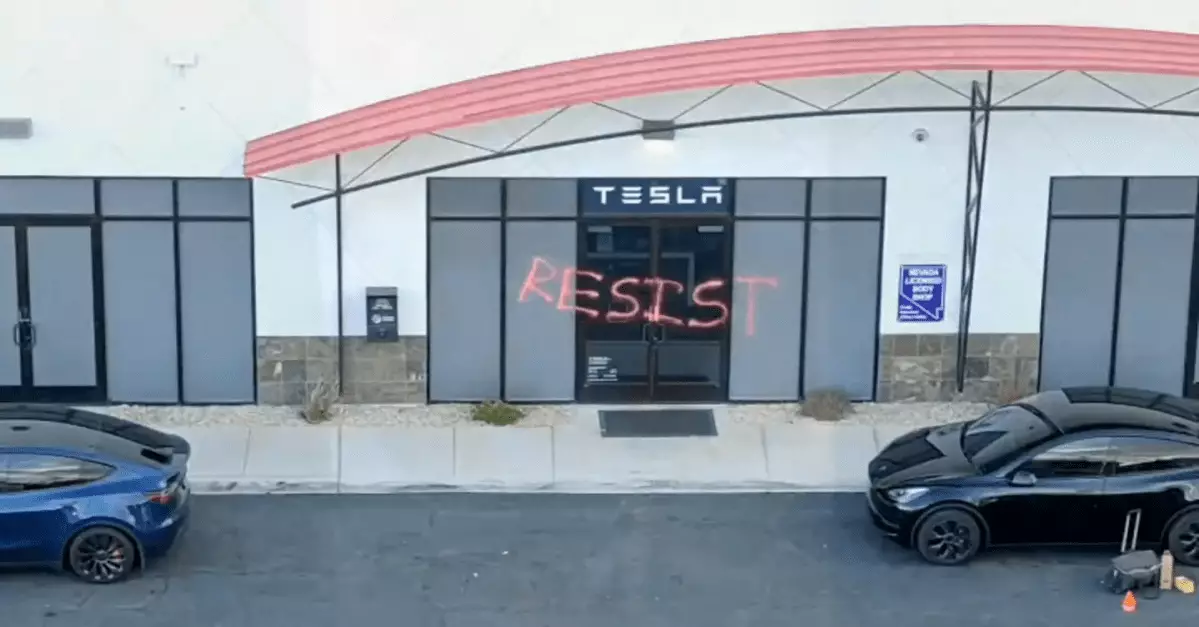The ongoing saga surrounding Tesla has taken a disconcerting turn, as vandalism against their vehicles escalates into what some are calling domestic terrorism. The Trump administration’s consideration to categorize these violent acts under the terrorism umbrella raises significant questions about the role of hate and hostility in today’s polarized society. Over the past month, a spate of anti-Tesla incidents has ignited public concerns, particularly following harrowing reports of vehicles set ablaze in Las Vegas and Kansas City. This alarming surge in aggression against what is effectively a car manufacturer hints at deeper societal fractures.
Press Coverage and Public Response
In the Las Vegas incident, a suspect clad in all-black gear reportedly launched a Molotov cocktail attack against several Teslas, leading to widespread media coverage that fueled public outcry. The spectacle of the attacker spray-painting “resist” on the showroom doors adds a layer of political fervor to the assaults, suggesting that the animosity is not solely about the vehicles themselves but also about Tesla’s perceived role in broader socio-political issues. Tesla’s CEO, Elon Musk, implored the public for sanity in the wake of these attacks, labeling such violence as terrorism, a strong descriptor that signals the severity of the situation. While some may denounce his remarks as overblown, they shine a light on a growing issue: the rise of targeted hostility against companies or individuals simply trying to succeed in their industries.
Law Enforcement and Investigative Measures
As these events unfold, the response from law enforcement has been multifaceted. The Las Vegas Police Department, along with the FBI’s joint terrorism task force, has initiated an investigation into the incidents. The description of these acts as arson, transitioned to potential terrorism, showcases an evolving understanding of what constitutes a threat to public safety. Deputy Fire Chief Jennifer Wyatt’s remarks about extinguishing vehicles before the batteries ignited highlight serious safety concerns, suggesting that these violent acts are not just attacks on property but create real risks to human lives.
The Broader Implications for Society
The implications of labeling attacks on Tesla vehicles as domestic terrorism extend beyond the car manufacturer. Such categorization could set a precedent for how we tackle hate crimes and acts of vandalism motivated by animosity towards specific individuals or corporations. As we analyze these incidents, we must confront the underlying cultural currents that fuel such violent dissent. Are we witnessing a dangerous new frontier where personal and corporate grievances manifest as physical confrontations? If unresolved, this can deteriorate into a vigilante culture where opinions quickly devolve into violence.
Ultimately, the moral duty lies in fostering productive dialogue about our differences without inciting hatred. The Tesla scandal might well be a case study for how society grapples with shifting values; as tensions rise, so too must our commitment to justice and peace in the face of hostility.

